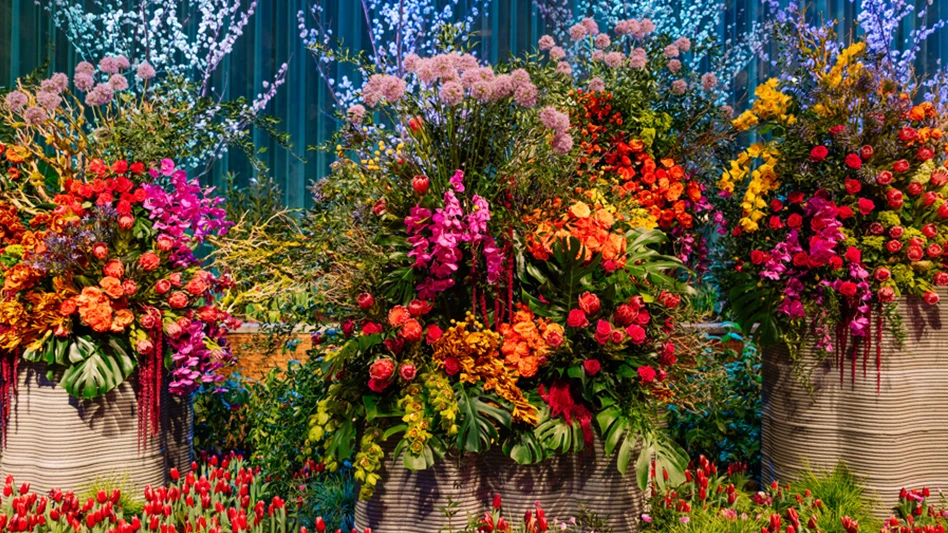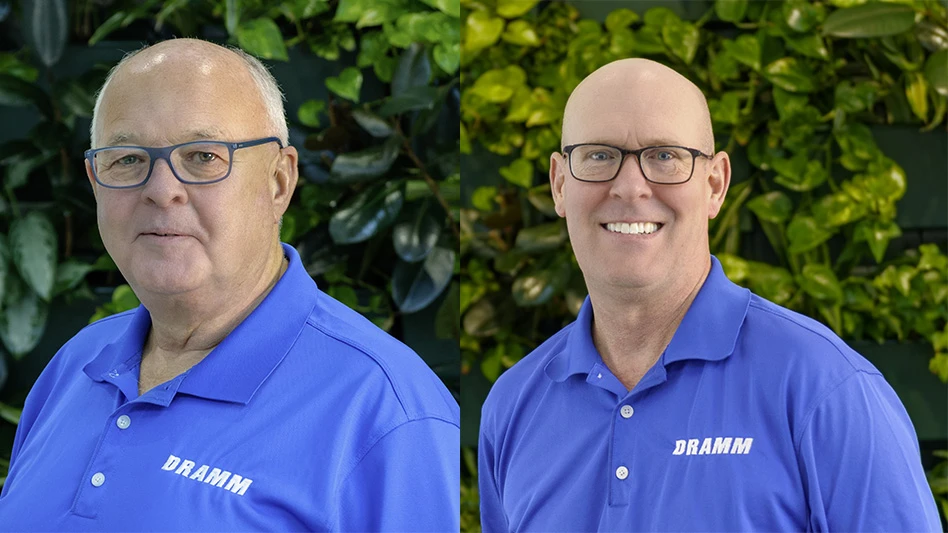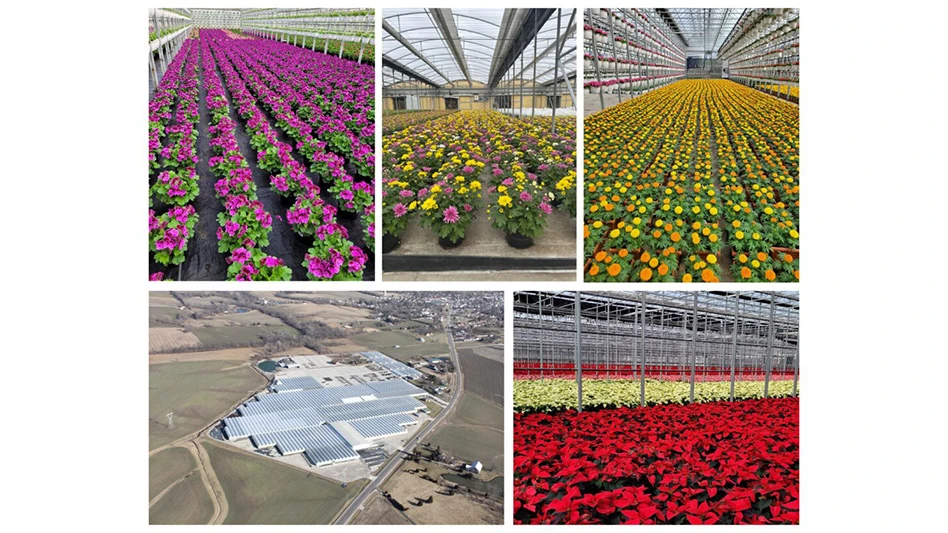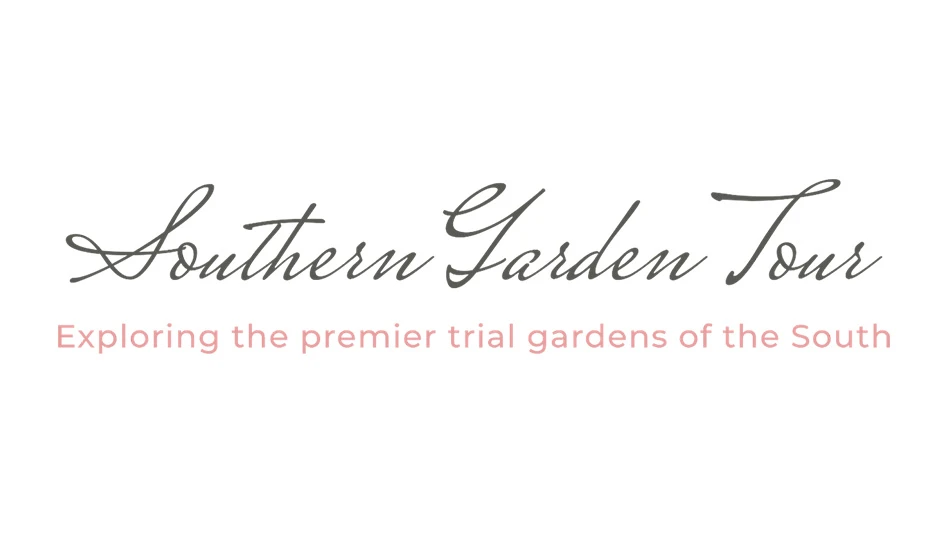
The Shreckhise family’s roots in the nursery industry date back to the late 1800s, when Noah Shreckhise founded Augusta Nurseries. The nursery was located on the family farm in Augusta County, Virginia. In 1935, three of Noah’s nephews formed a partnership called Shreckhise Brothers. The brothers started several businesses, including nursery production and landscaping using plants grown on Uncle Noah’s farm. In 1961, the nursery moved to its current location in Rockingham County. Production increased, and the business began to wholesale plants to local garden centers and landscape contractors.
In 1977, the next generation, including Danny Shreckhise, purchased the business. Today, Danny is reducing his role and his children Matt Shreckhise and Tara Durso, are leading the business into the future.
“Matt handles sales and I can’t imagine anybody working harder than he does to provide service to our customers,” Danny says. “He works really hard to make sure they’re getting what they need when they need it.”
Matt is straightforward about product quality. Customers have a certain expectation of a Shreckhise Nurseries plant, so when he’s talking to them about an order, he’s honest about the size of the trees or shrubs being ordered.
“It’s about making sure the people aren’t surprised on the other end when they open the truck,” Matt says. “And if it is a surprise, it’s a good surprise.”

Crop mix
Every truck that leaves Shreckhise is generally loaded with boxwood, arborvitaes and hydrangeas.
The nursery has added more native trees and shrubs to its production schedule to keep up with demand. Native plants are headed to garden centers more often than before, but the majority are going to large landscaping jobs in big numbers. Many municipalities are requiring a certain amount of natives for jobs, and that’s driving the demand.
Tara says many customers come to Shreckhise for trees and end up buying other material as well.
“Trees are not the most profitable crop we produce, but they bring people in,” she says. “Boxwood and especially hydrangea are more profitable for us. Flowering shrubs in general have a quicker turnover. Trees are larger and take more work, but we carry them because they bring people in.”
Matt says the 15-gallon container size of Shreckhise trees is a big factor in their popularity.
“It is very easy for the garden center customer to handle that,” he says. “It’s much easier than a 25 gallon or B&B tree.”
As far as arborvitaes, the nursery sells plenty of Green Giants and Emerald Greens, but there is also a new arb on the horizon – Shreckhise’s first new introduction, Emerald Squeeze. Danny found the original growing in a block of field-grown arborvitae at least 25 years ago. As that crop matured, he noticed a plant in the block that was just different. It was smaller, more compact, with a slightly different texture and a little different color of green. It was serendipitous that it was noticed before it was dug out and shipped out somewhere with the rest.
When that block was cleared, the one that stood out was planted in a test growing area where it was observed for several years.
“A couple years after Matt came back, he kept telling me I needed to do something with that plant,” Danny says.
So they propagated it and observed the growing process. Danny says the differentiating factor with Emerald Squeeze is that it grows very compact and pyramidal with a strong central leader. It grows well in container production but slows down in the landscape, which he thinks is a benefit. At full size, it will be about 8 feet tall and 4 feet wide.
After watching it and being impressed by how well and how fast it grew, Danny contacted Star Roses and Plants. He’d had a good relationship with that company for many years, especially with Bradd Yoder, Star Roses’ president. Star tested Emerald Squeeze in its trial gardens, tested it further in propagating trials and at other trial gardens from Minnesota to the deep South. It did well, with no winter burn in cold climates and withstood the South’s heat and humidity.
Star has been a good partner for Danny, working to introduce Emerald Squeeze to the market as a patented plant in the company’s Bloomables brand. They’re growing it, their growing partners have 21-cell and one-gallon plants, and of course Shreckhise is growing it too. Danny says they put some in red pots and sent them to garden centers, where they’re being promoted as Christmas plants.
Emerald Squeeze is Shreckhise’s first new plant variety. It’s been a fun ride for Danny and the Shreckhise crew.
“It’s pretty cool to open up somebody else’s catalog and see Emerald Squeeze,” he says.

Changes
When Danny started working in the family business, the nursery was a field operation. In 1981, Shreckhise Nurseries began the transition to container production.
“Now, we’re 100% container production,” Danny says. “I don’t have any desire to plant another plant in the field.”
At the time, he saw demand for container-grown trees and shrubs ramping up. He also was persuaded by the ability to move and ship plants year-round.
“When you’re only growing material in the ground, there’s a huge seasonability factor to the industry,” he says. “When you move to container production, you don’t eliminate that, but you mitigate it.”
Matt adds that another advantage of container production is that it allows the nursery to be more nimble. Shreckhise can adapt more easily when the industry shifts its demands.
“The longest we have plants here is a year, maybe two,” he says. “75% of our plants are out of here within a year and that really helps us change how many plants we grow, the types of products we grow. We can adjust to market demands pretty quickly. It’s a different type of labor force too.”
Container production is not as dependent on the weather. Additional advantages are the ability to fit more plants on a trailer for shipping, or more plants per acre on the ground. Today, Shreckhise has 40 acres in production. The nursery grows about 40,000 trees each year, ranging from 7 to 15 gallons, and 150,000 shrubs, mainly in three-gallon pots.
Shreckhise Nurseries has also added more automation to its production practices. Danny says when the nursery first switched to container production, they were doing a lot of planting by hand. Many tasks are done with machines now, from plant handling and potting machines to the computerized irrigation systems.
“We can water from anywhere we have Internet,” Matt says. “We just need to have someone here to make sure it turns on,” he laughs. “It makes things so much easier. You can turn on houses pretty quickly with how we have it now.”
Though they’ve been automating irrigation for nearly 15 years, it has only been in the last five to seven years that smartphone functionality has progressed far enough to handle such a vital task.
Shreckhise Nurseries has grown over the last five years, adding 60 hoop houses without adding much to the labor force, something Matt believes couldn’t have happened without a focus on efficiency and some of the automation solutions they’ve implemented.

New perspectives
Though the business has changed in many ways since Danny joined as a full-timer in 1971, not everything has changed.
“One thing that has stayed the same is that the family is still the point of contact here,” Matt says. “It’s been dad and before that it was my granddad and uncles. Now it’s me, and it’ll be that way for as long as I’m around.”
He believes his customers appreciate that they’re talking to a Shreckhise when they call in for a question about their order.
“We’ve all been in that situation when you call customer service and you don’t get satisfaction and you want to talk to the manager,” Matt says. “Well, I’m that guy. I’m the guy all our customers talk to.”
Matt has been with the company for 17 years. He’s the sales manager, and he handles sales, shipping and logistics. He majored in business at Virginia Tech, but he did take a few horticulture classes, which whet his appetite. Even though he worked at the nursery during summer all through his high school and college years, it took a few hort classes in college to pique his interest in the family business as a career.
Danny wasn’t surprised.
“Me and a college friend of mine were talking and he said something I think is true and not just for Matt,” Danny recalls. “He said ‘Once you’ve taken a plant ID course, you’ll never look at the landscape the same again.’ Once you’ve started learning plants, you don’t just see a bunch of evergreens or trees. You start seeing individual species and you look for quality traits.”
Matt wanted to come back to the nursery, but Danny had other plans. He wanted Matt to go work somewhere else for a while, in a completely different field. That way, when he eventually returned with new skills and knowledge, he’d be bringing something fresh to the table.
“Dad’s been doing this all his life,” Matt says. “So to have an outside perspective on things has been helpful.”
Matt got a job in the technology and corporate recruitment field in Washington D.C. He received sales and management experience pretty quickly and learned a lot working for someone else, especially someone who wasn’t a family member. His return was never forced. Danny had made it clear that he could come back, but only if he was ready and if he really wanted to, and he did.
“What I learned being away was the value of uncertainty and independence, and I needed to have that,” Matt says. “And I think Dad needed me to have that before I came back.”
From his time working as a teenager, Matt knew the nursery industry. When he compared what he remembered of it to what he saw in D.C., the contrast was stark.
“It’s just good, honest people in this industry,” he says. “They’re hard-working. And after being in the corporate sales world where it’s cutthroat and people aren’t as easy to get along with — I knew I liked sales, but I knew I didn’t want to do that. I’m very, very thankful for that time away. I don’t think I would appreciate this as much if I hadn’t done that.”
Danny’s daughter, Tara Durso, never expected to be working for the family business. But she’s been back with the company for two years now. She earned a business degree from The College of William & Mary, and worked in finance and project management for government contractors and large companies in Northern Virginia and D.C. She was consulting for a local family-owned winery when her husband told her that if she was going to work for a family business, she might as well work for her own family.
When her father began stepping back, he asked her if she’d like to join the business. She’s taken over some of the financial and administrative aspects of the company, and helps Danny with the purchasing and special projects, as well. Shreckhise Nurseries used the H-2A program for the first time in 2023, and Tara led that project.

The people
Building relationships has been vital to the success of Shreckhise Nurseries. But just focusing on your customers isn’t enough. Your employees and suppliers need to be satisfied too, Matt says.
Three brothers, Jimmy, Donald and Bobby Shifflett, have worked for Shreckhise for 40 years. Teresa Bergey, the office manager, will reach her 30 year anniversary in February.
“She’s a jewel,” Matt says.
Grower Trey Jarrels joined the nursery five years ago but has known the family all his life.
“He’s like family,” Matt says. “They all are. We try to keep them happy.”
“We’re not hard to work for,” Tara says. “We’re demanding, but everybody has a good rapport.”
The nursery has kept its key people in place for a long time, but Shreckhise has struggled like the rest of the industry to find and keep a general labor force that handles all the moving of plants, weeding and fertilizing. The nursery used the H-2A visa program for the first time in 2023. In early December, the first H-2A crew of seven workers headed home.
“Every single one of them wants to come back, which is going to make it a lot easier in February,” Tara says.
Danny has been active in industry organizations at every level, and he’s passed that service on to the next generation. Danny is currently representing the state of Virginia on the MANTS board and is a former president of the Virginia Nursery and Landscape Association. In a neat bit of history repeating, Matt also served a term as VNLA president.
“We’ve tried over the years to give back to the industry that is providing us an opportunity to make a living and enjoy life,” Danny says.

The long goodbye
Danny’s role is diminishing as his children take more responsibility for running the business. But after 53 years in the family business, he couldn’t just disappear.
“It’s been in the works,” Tara says. “He’s known he wanted to step back, but it takes a while. You can’t just say ‘goodbye.’”
Matt says he had been hearing from Danny that he wanted to step back for years, but there was always more work to do and he was always ready to do it. The next generation understood the struggle their father was having and why the transition would be slow.
“It’s hard to let go of things,” Matt says. “We certainly didn’t want to force him, but we had to be more specific for him to actually start taking steps away.”
“I kept saying ‘I’m going to cut back, I’m going to cut back,’” Danny says, “And my kids said ‘You need to be more specific (or it’s never going to happen).’ So I said, ‘I’m only coming in on Monday, Tuesday and Wednesday.’”
Danny has stuck to the three-day routine for about a year and a half.
One of the major steps the Shreckhise crew took that allowed Danny to step back was hiring a grower, Trey Jarrels, five years ago. With Danny’s training, Trey has been able to take a lot of the growing and production work off his plate.
Danny still handles the purchasing of plant material that the nursery brings in for liners. He’s involved in several projects in the nursery, but he’s left running the day-to-day operations behind. He’s sticking to his reduced schedule, and he’ll always answer the phone if one of his kids call. But Danny believes learning how to make decisions without him is an important part of the transition.
“We have to fail ourselves, too,” Matt says. “We have to make bad decisions so we can learn. We can’t just always rely on dad’s knowledge and expertise. He could be here forever, but maybe he won’t be.”
Matt and Tara have a strong team around them, and they’re forging their own path.
Danny understands exactly how lucky he is. Not every owner is able to pass the baton to a son or daughter so the race can continue. It’s not a given that the next generation wants to take over the business. Not every small horticulture operation or farm survives that transition.
“I am extremely blessed to have a son and a daughter around me every day that are willing to move forward and grow the business and be involved in such a wonderful industry,” he says.
For more: www.shreckhise.com

Explore the January 2024 Issue
Check out more from this issue and find your next story to read.
Latest from Nursery Management
- GIE Media Horticulture Group wins five regional 2025 Azbee Awards of Excellence
- Get to know Pat Reilly with NewGen Boxwood and the American Boxwood Society
- Terra Nova Nurseries introduces rust-free and disease-resistant heucherella
- John T. Nickel, founder of Greenleaf Nursery Co., passes away at 89
- Three tours offered at 2025 Farwest Show
- Garden Media Group announces sixth annual Women in Horticulture Week
- Star Roses and Plants announces National Knock Out Rose Day
- The Growth Industry Episode 4: How federal budget cuts are affecting horticulture nonprofits





